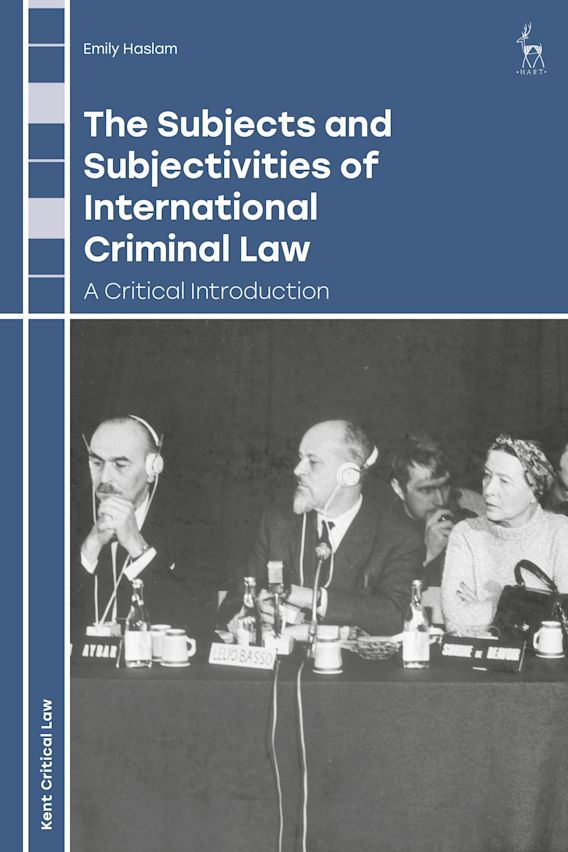The inaugural book in a new Kent Critical Law series critically interrogates international criminal law’s response to atrocity.
The Subjects and Subjectivities of International Criminal Law: A Critical Introduction is written by KLS academic, Dr Emily Haslam, and published by Hart Publishing. The book introduces students to the central concepts and institutions of international criminal law and seeks to inspire its readers to think creatively about how they else they might imagine international criminal law and its possibilities.
The Subjects and Subjectivities of International Criminal Law is inspired by the alternative visions of justice emanating from sites and actors that are often-overlooked in international law. It draws in particular on the approaches to international crime that can be seen in the practice of citizens’ tribunals. Such creative thinking is vital in the contemporary context which sees both a profusion of international crime and ongoing criticism about international law’s responses to it.
A launch event for The Subjects and Subjectivities of International Criminal Law will be hosted on Wednesday 20 November. Professor Kirsten Campbell (Goldsmiths, University of London), Dr Nicola Palmer (King’s College London), and Professor Wade Mansell (University of Kent) will discuss the themes and ideas of the book with Dr Emily Haslam.
 Dr Haslam is Senior Lecturer and Co-director of the Centre for Critical International Law at the University of Kent. The Subjects and Subjectivities of International Criminal Law draws on her teaching experience in international criminal law of over twenty years. Her research interests lie in the fields of international criminal law, international legal history and civil society. She is the author of The Slave Trade, Abolition and the Long History of International Criminal Law (Routledge) and numerous book chapters and articles in the field of international criminal law.
Dr Haslam is Senior Lecturer and Co-director of the Centre for Critical International Law at the University of Kent. The Subjects and Subjectivities of International Criminal Law draws on her teaching experience in international criminal law of over twenty years. Her research interests lie in the fields of international criminal law, international legal history and civil society. She is the author of The Slave Trade, Abolition and the Long History of International Criminal Law (Routledge) and numerous book chapters and articles in the field of international criminal law.
The Kent Critical Law Series aims to provide students and scholars of law with the tools to enable critical engagement with the major fields of law and their historical, contemporary and future development.

